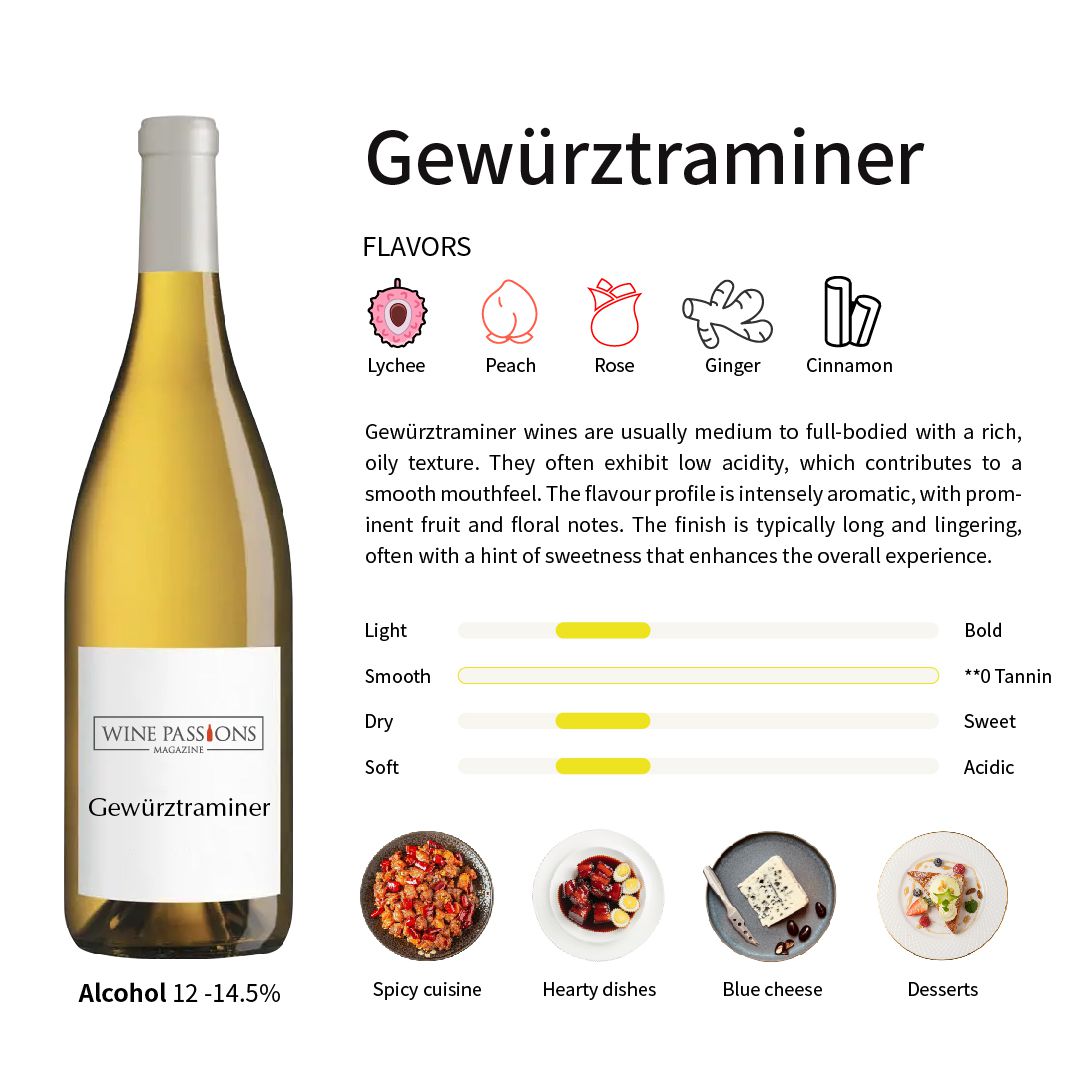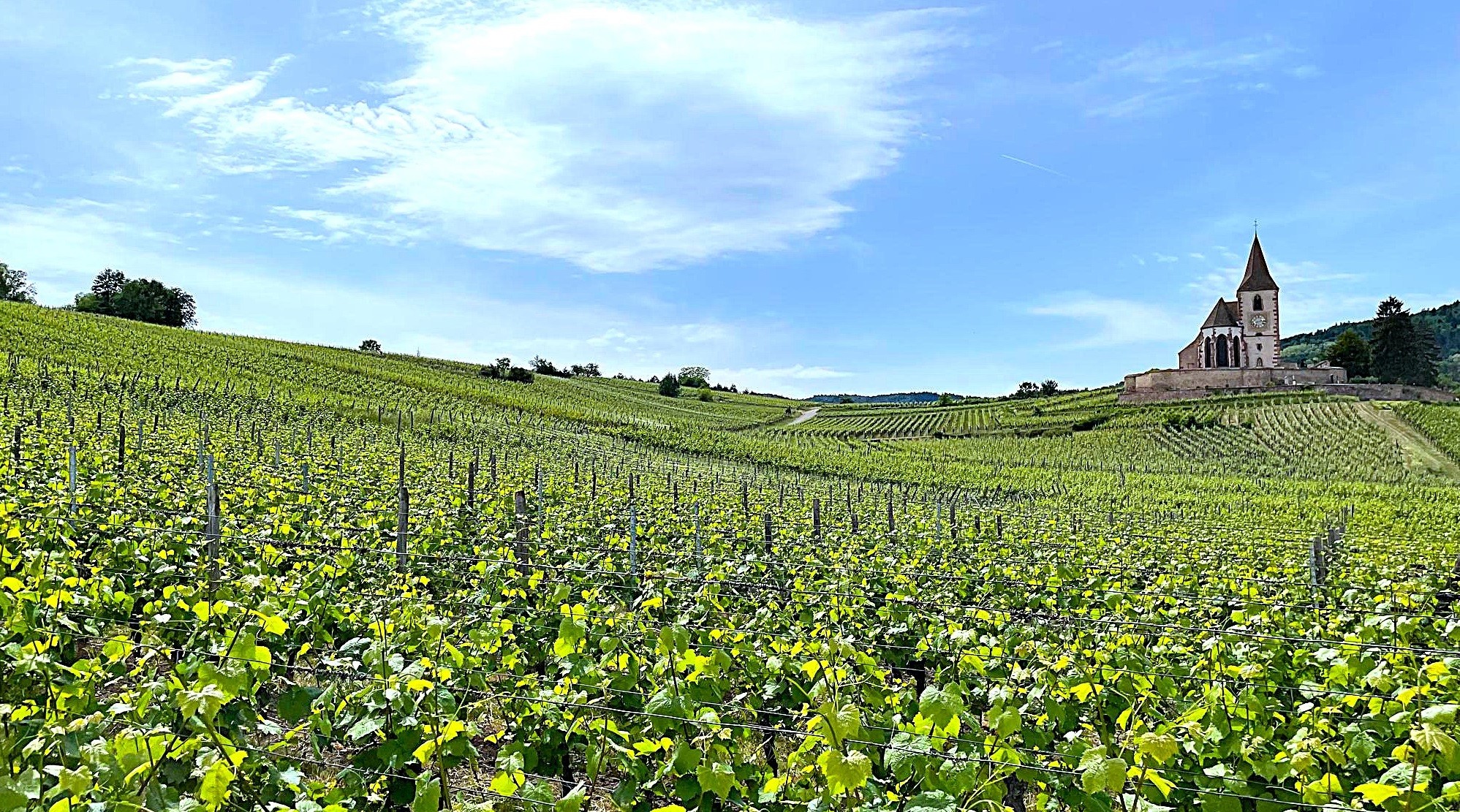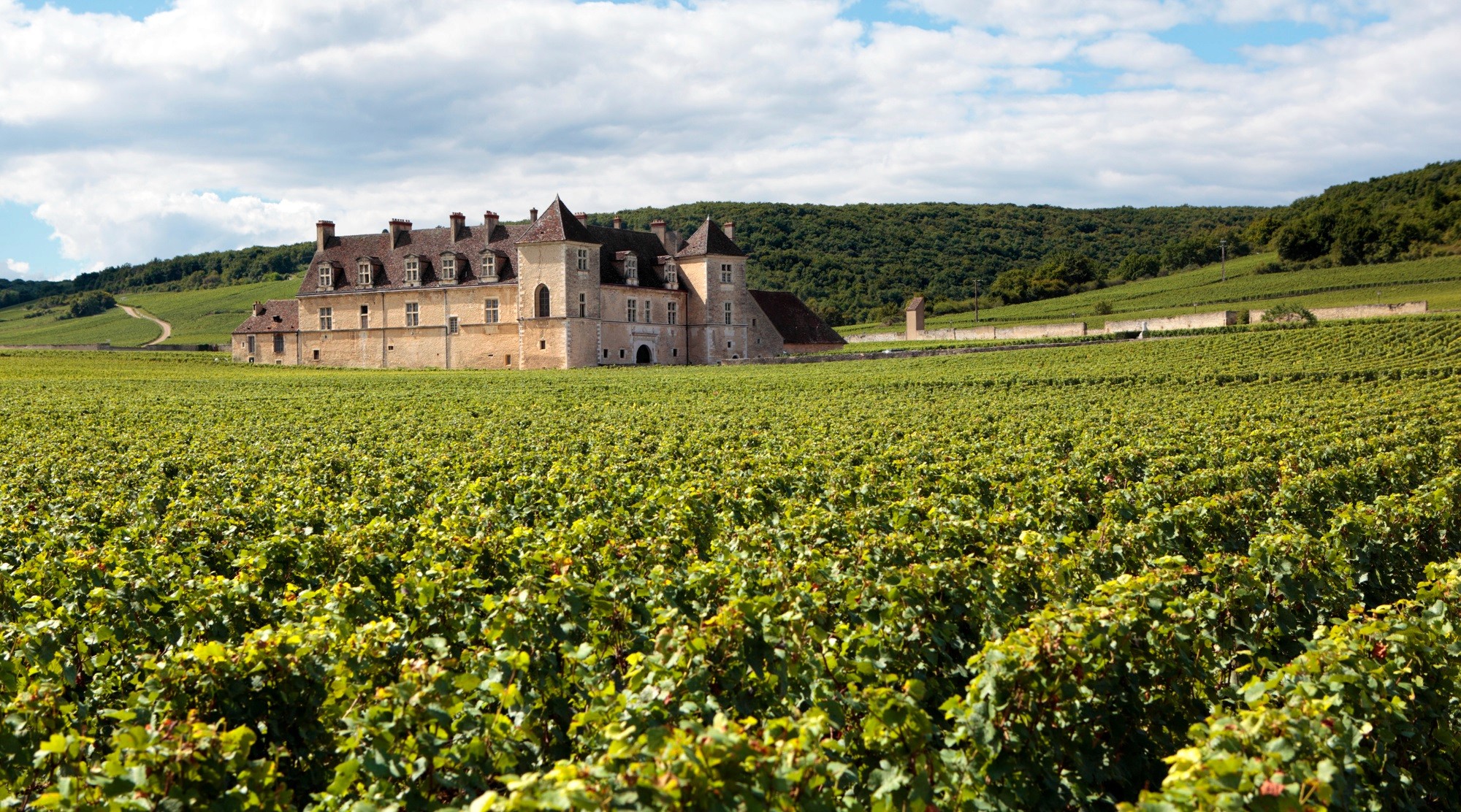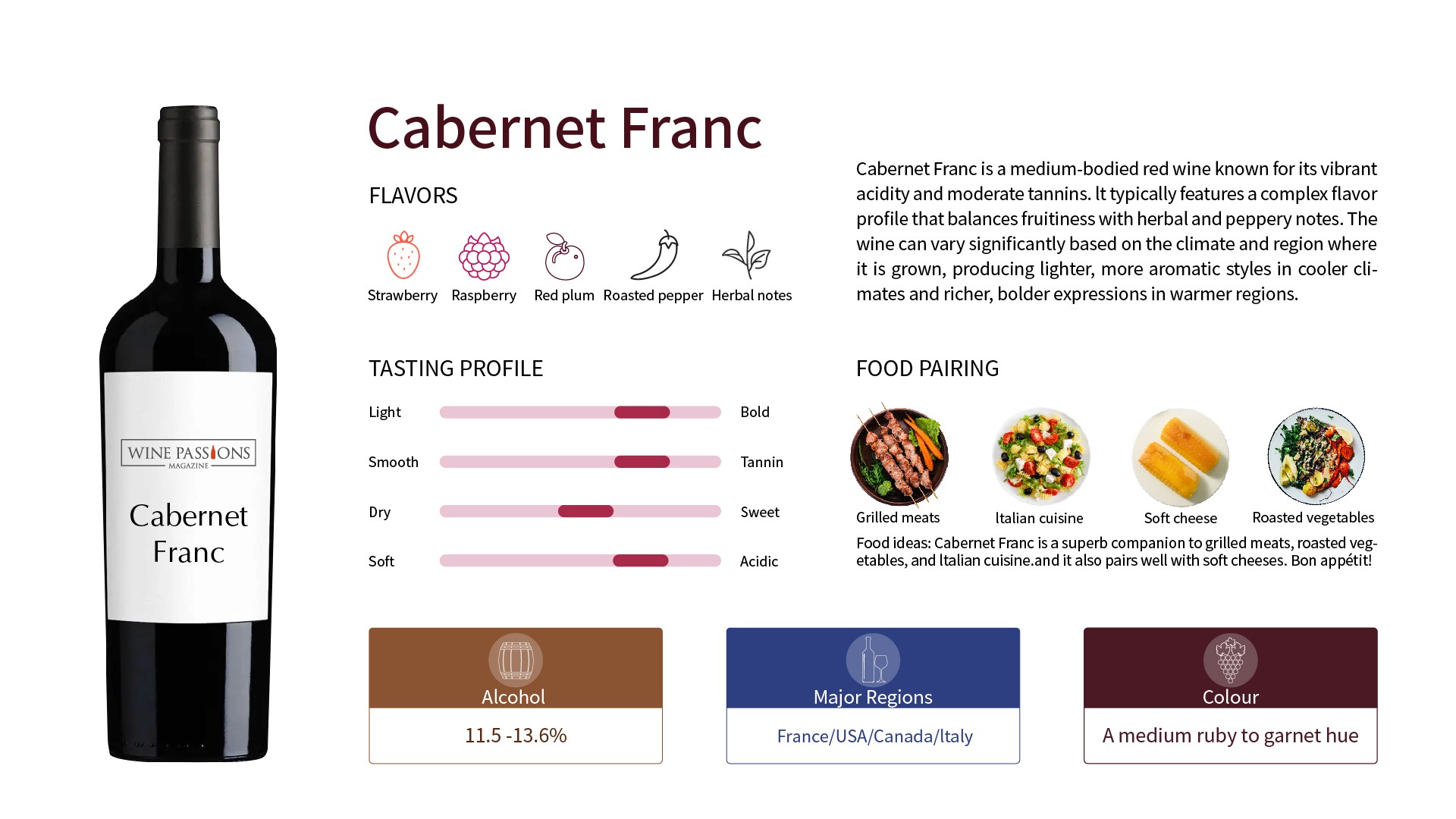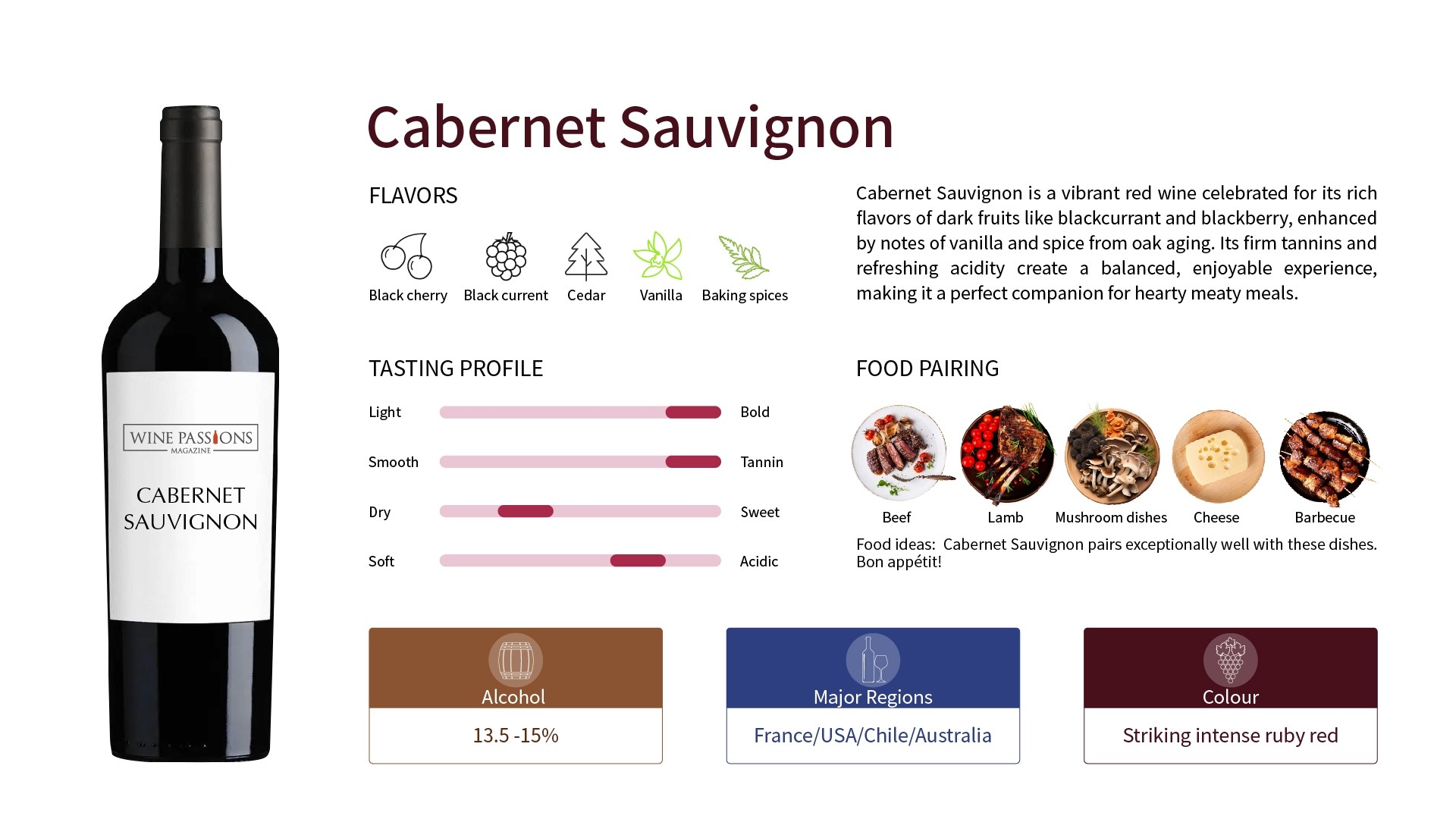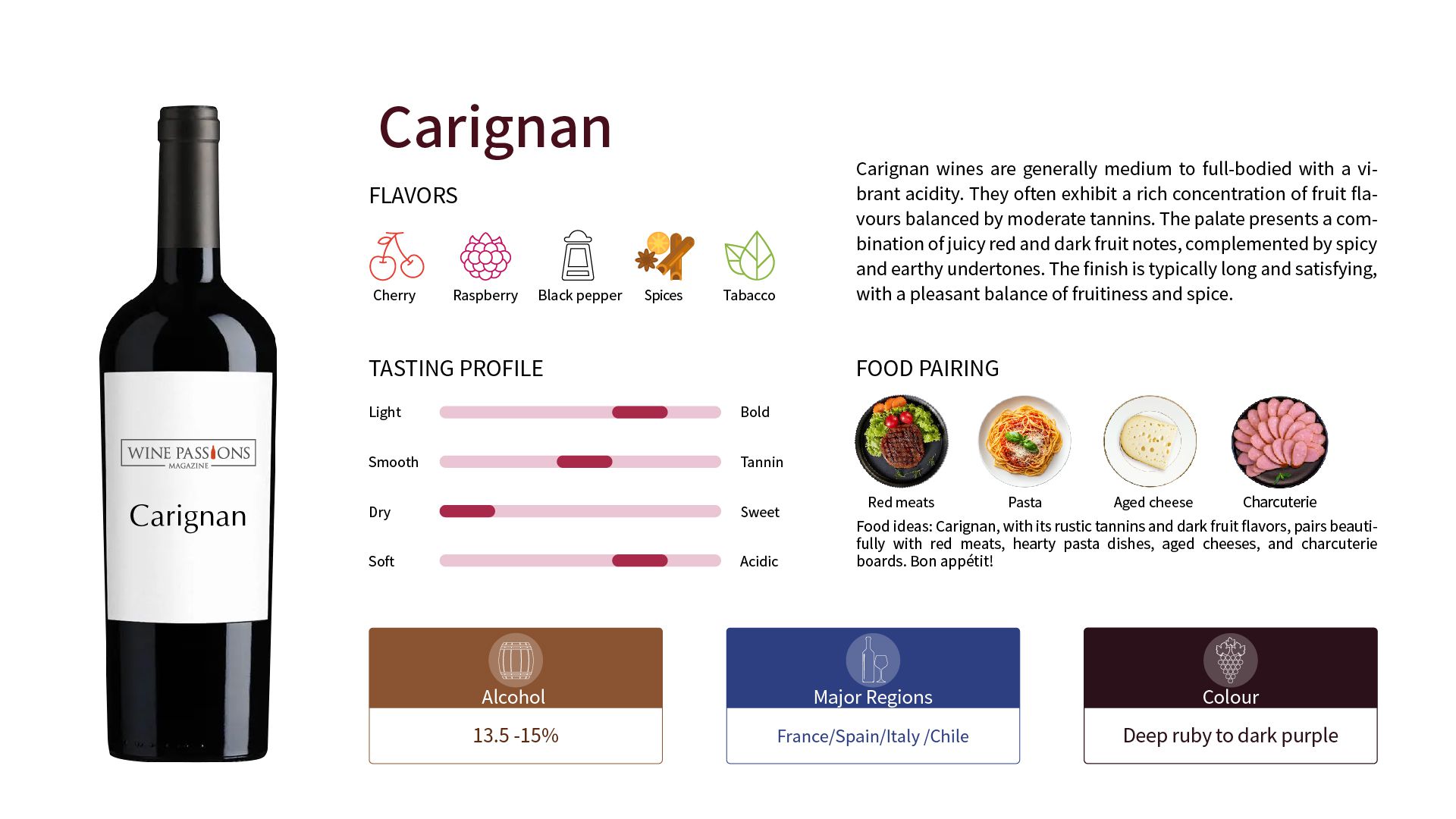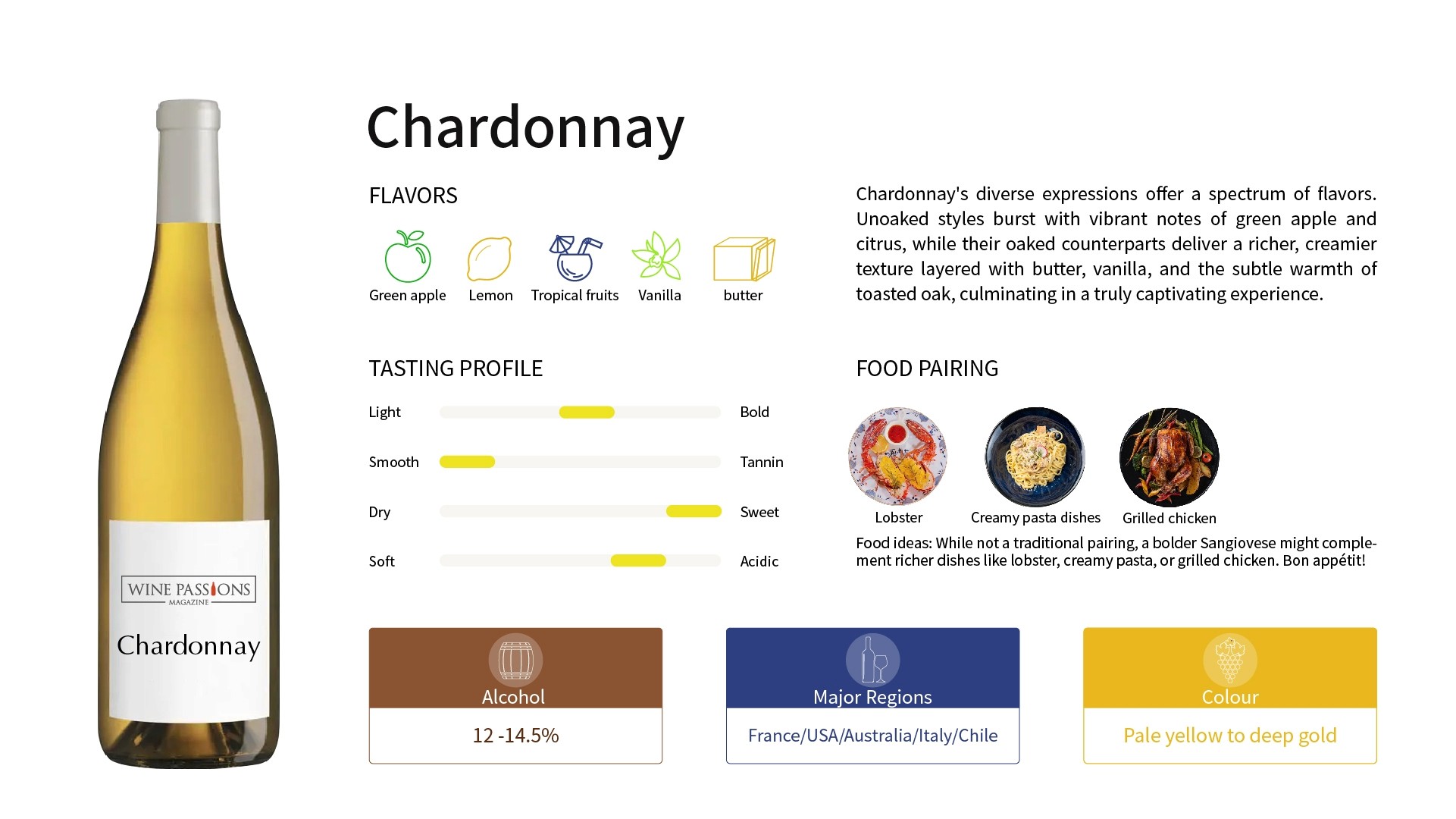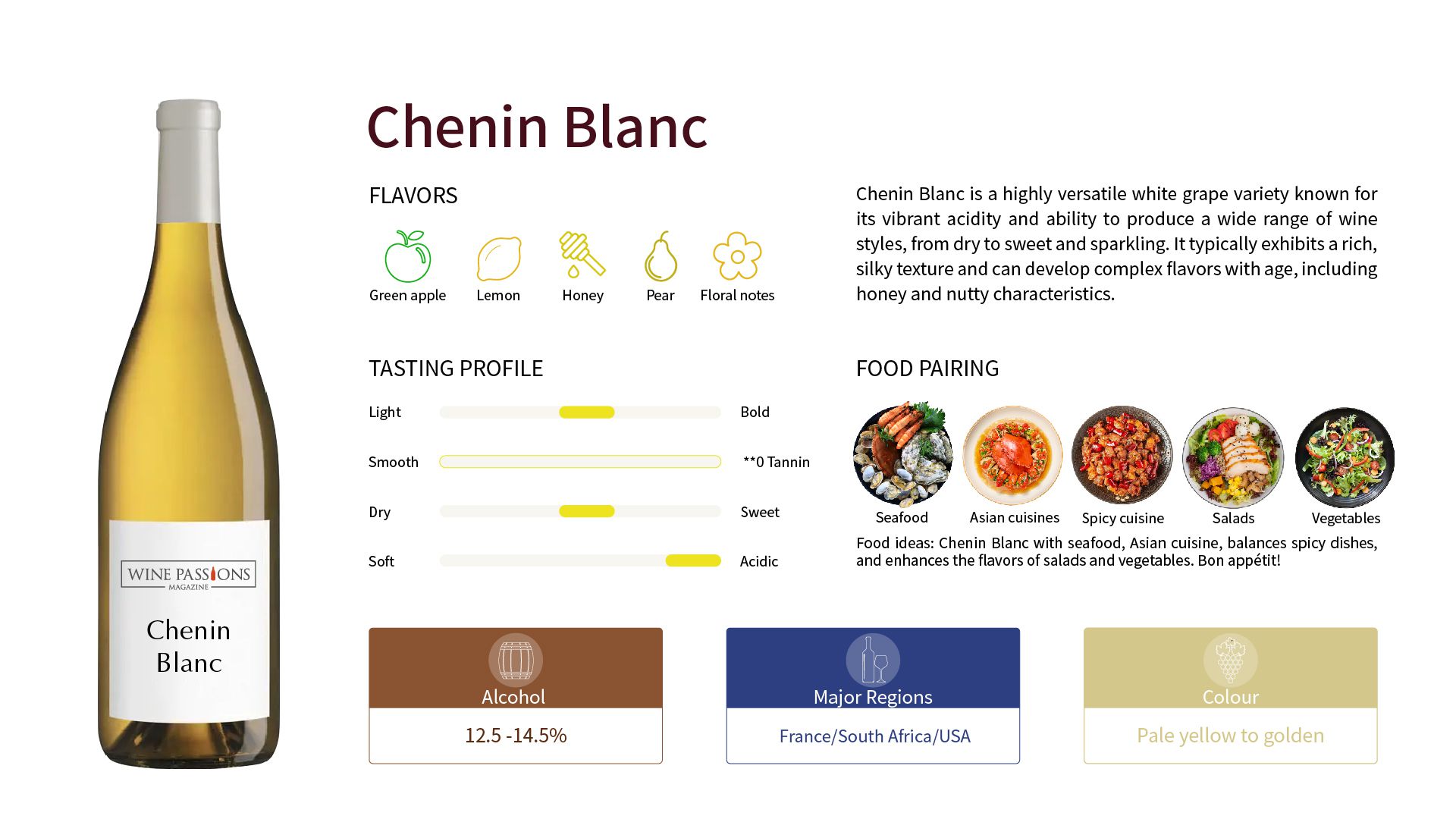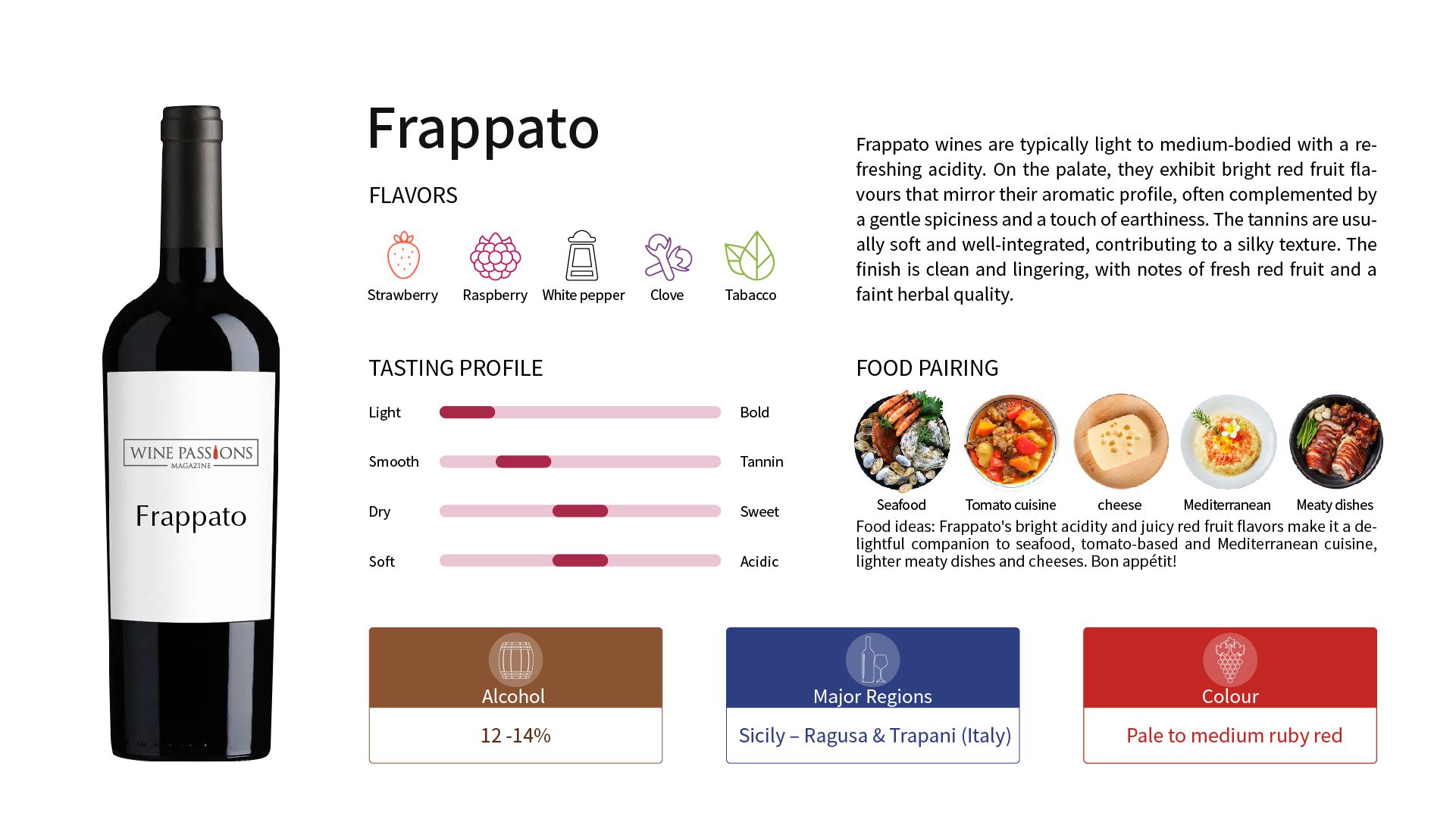Cabernet Franc
Background and Origin
The history of Gewürztraminer dates back to the Middle Ages, with records related to this variety appearing as early as the 12th century in the village of Tramin. Over time, Gewürztraminer gradually spread to countries such as Germany and France. This variety primarily grows in Bavaria and the Pfalz region of Germany, while in France, Alsace has become one of the most important regions for Gewürztraminer.
In the 19th century, the name Gewürztraminer was officially established and began to be widely used. The term “Gewürztraminer” first appeared in German literature in 1870, where “Gewürz” means “spice”, reflecting the unique and intense aromatic characteristics of this variety. As Alsace became a significant wine-producing area for Gewürztraminer, the variety's popularity and recognition continued to rise.
With the development of global wine culture, Gewürztraminer gradually spread to other countries. Today, it is not only widely planted in Germany, France, and Italy in Europe but has also found suitable growing environments in the United States, Australia, New Zealand, and other places. In the United States, some cooler areas in California like Monterey and Sonoma have begun producing high-quality Gewürztraminer.
Reasons for Popularity
Unique Aroma
Gewürztraminer is renowned for its intense and distinctive aroma. Many drinkers are drawn to its fragrances of lychee, rose petals, and tropical fruits, making this wine stand out in the market. These aromas make Gewürztraminer a popular choice in many restaurants and bars.
Diverse Styles
Gewürztraminer can be made in various styles, including dry, off-dry, and sweet. This allows it to satisfy different consumer preferences, whether they prefer a refreshing taste or a sweeter flavor.
Good Food Pairing
Gewürztraminer, with its rich flavor and low acidity, pairs very well with a variety of cuisines, especially spicy or strongly flavored dishes. For example, when paired with Thai green curry or Indian cuisine, it can balance the spiciness of the dishes, making the overall flavor more harmonious.
Flavor Characteristics
Fruity: Typically exhibits rich tropical fruit aromas, including lychee, pineapple, peach, and apricot.
Spices: Carries subtle spice flavors, such as ginger, cinnamon, and clove.
Texture: Has a medium to high alcohol content, with a fuller body and round mouthfeel, sometimes even possessing a fatty feel, with acidity usually being low.
Main Production Areas
Alsace, France: Alsace is the most famous Gewürztraminer region in France, known for its dry and off-dry wines. This area has a unique microclimate that allows Gewürztraminer to fully ripen and showcase its rich aromas. The diverse soils of Alsace, including limestone, clay, and sandy soils, lead to varying flavors of Gewürztraminer from different plots. In Alsace, Gewürztraminer is often used to produce high-quality sweet wines, such as "Vendanges Tardives" (late harvest wine) and "Sélection de Grains Nobles" (noble rot wine), which typically have intense fruity aromas and a sweet taste.
Germany: Gewürztraminer primarily grows in the Pfalz and Baden regions. These regions are known for producing sweet and semi-sweet Gewürztraminer. The Gewürztraminer from Germany is usually sweeter and more aromatic than its Alsace counterparts, with lower acidity, resulting in a softer mouthfeel.
Italy: Alto Adige is one of the most important Gewürztraminer regions in Italy, praised for its fresh and layered body. Here, Gewürztraminer typically exhibits bright acidity and mineral flavors, giving it a different style from Alsace.
California, USA: Some cooler regions like Monterey and Sonoma have also begun producing high-quality Gewürztraminer. The climate conditions in these areas allow this variety to maintain good acidity while developing rich aromas.
Famous Gewürztraminer Wines
1. Trimbach Gewurztraminer
A classic Gewurztraminer from Alsace, France, renowned for its balanced and complex flavors. This wine showcases bright freshness and rich fruit aromas, making it a representative work of the region. The Trimbach family has been dedicated to producing high-quality wines since 1626, with a deep heritage in selecting the best vineyards and winemaking techniques.
2. Hugel Gewurztraminer
The Hugel family is one of the oldest and most renowned wineries in Alsace, and their Gewurztraminer is widely praised for its elegant and persistent flavors. This wine produced by Hugel features typical aromas of rose petals, lychee, and tropical fruits, making it an ideal choice for lovers of aromatic white wines.
3. Cantina Tramin Gewurztraminer
A well-known winery in Italy’s Alto Adige, famous for its refined and layered Gewurztraminer, making it an excellent choice for exploring this variety. The Gewurztraminer produced by Cantina Tramin is celebrated for its rich fruit aromas and delicate mouthfeel, and it pairs exceptionally well with spicy or rich-flavored dishes.
Tasting Notes
Tasting Notes
Tasting Temperature: Recommended at 15-20°C
Tasting Glass: Red wine glass
Decanting Time: 30 minutes
Ageing Potential: 5-10 years
Food Pairing
Spicy Dishes: Such as Thai green curry, Indian curry, or Sichuan cuisine.
Fish: Such as grilled sea bass or steamed fish.
Meat Dishes: Such as roasted chicken, pork, or duck.
Cheese: Such as blue cheese or goat cheese.
Desserts: Such as fruit salad or fruit tart.
